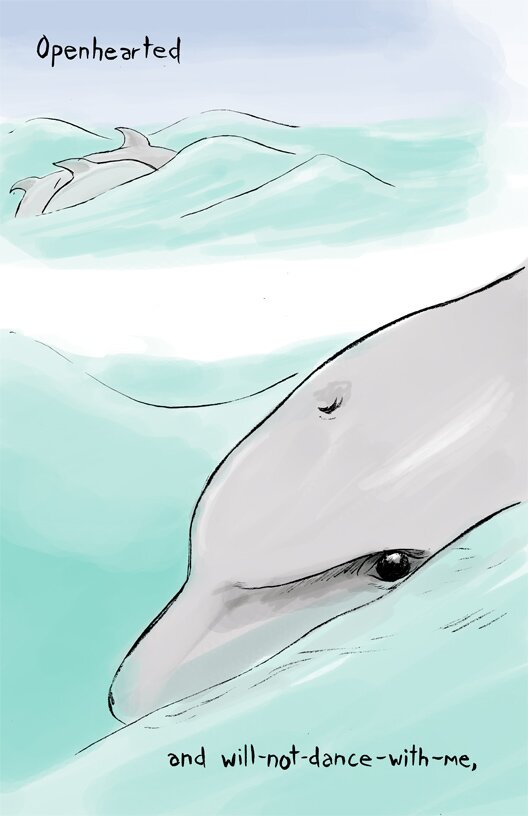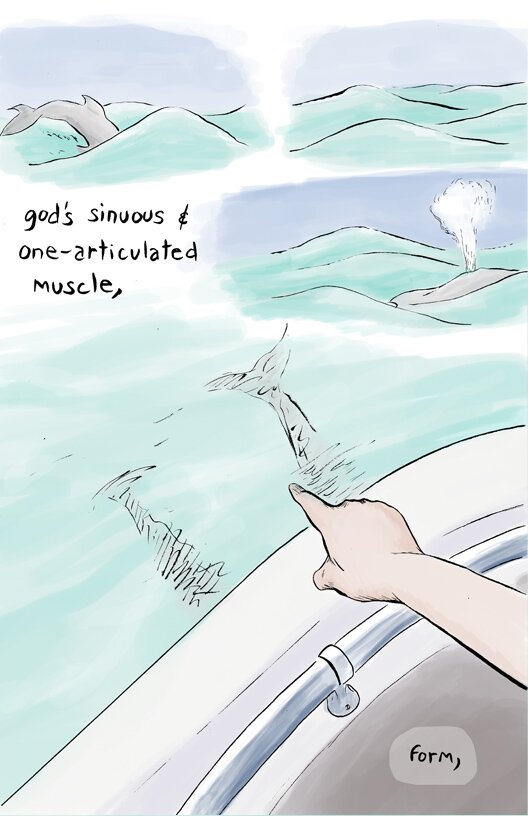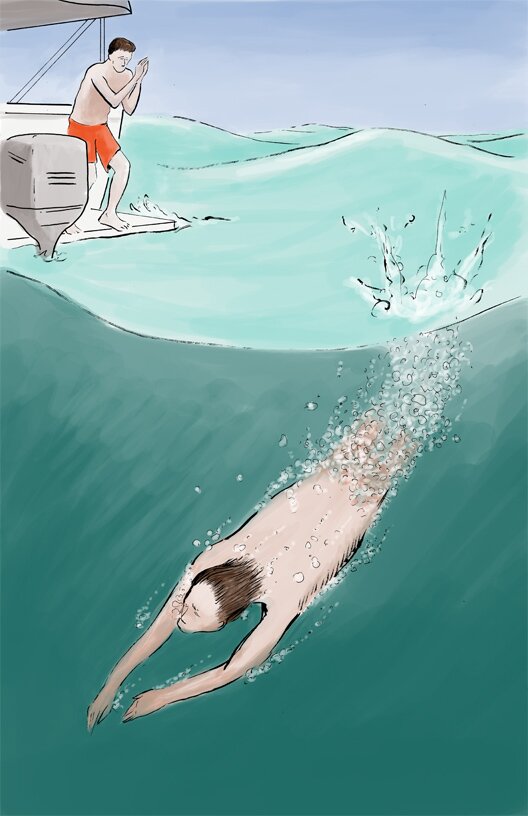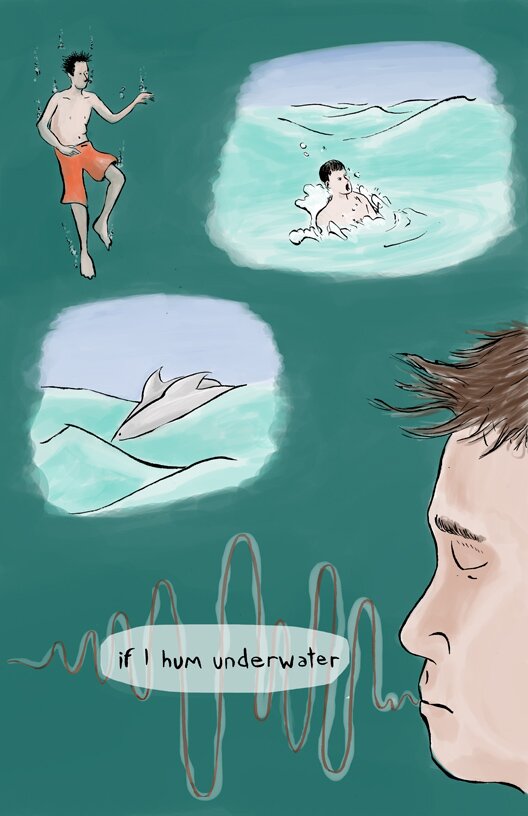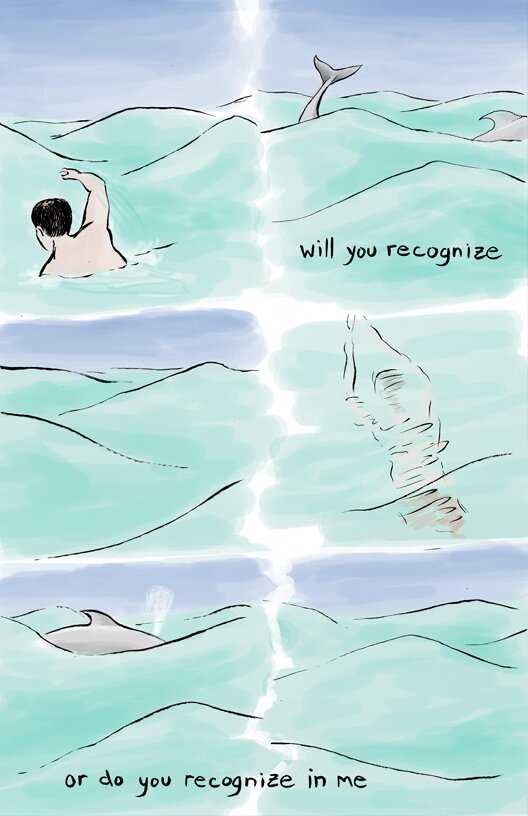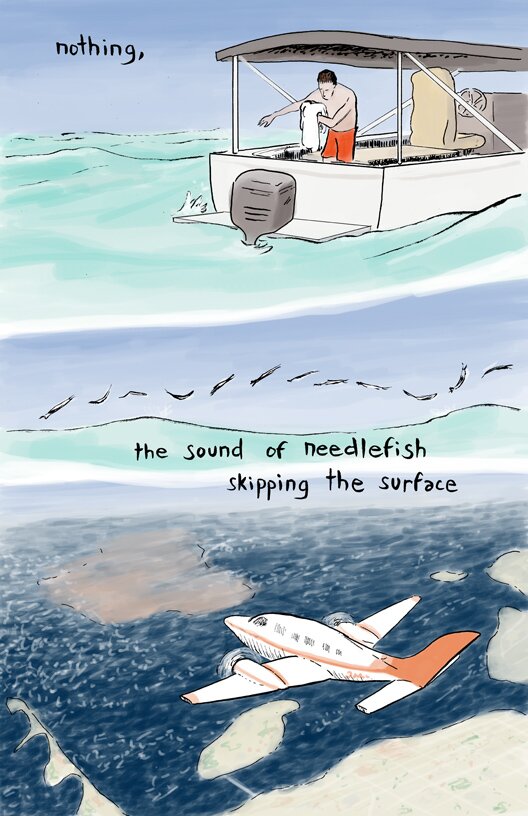No system can endure perfection. All systems thrive on defining imperfections either by way of “sin,” “error” being inappropriate, being “unprofessional” or being “counter–revolutionary.” Such offenses are punished or censored when it is an “I,” reformed when it is a “we,” and revamped or improved upon when in relation to an “it.” The one act that cannot be forgiven by any system and must be punished either by death, exile, or expulsion is perfect and true obedience.
We would think all systems would welcome perfect obedience. I will qualify: perfect conformity to the outward tenets of the system will be tolerated, and even rewarded (though such perfection is frowned upon and often accused of arrogance, or meanness of spirit). Perfect obedience, both in an outward obedience to the tenets of the system, and to an inward perfection of obedience to the system must be punished or converted into the dyslogistic terms of blasphemy, scandal, or treason. Why?
The “first” of all systems is arbitrary power. The hidden being and agenda of all systems is the power of the arbitrary: because I, we, or it said so. This power must be hidden behind vast terministic screens or order, protocol, standards, traditions, ritual, ceremony, rhetoric and various mechanisms of defense for the system. The more arbitrary the power, the greater the need for an outward semblance of order. It’s essence is arbitrary, and its substance is the outward mechanisms of systemic order, of “normative” being–one of us part of it, in step. The essence of all systems is arbitrary power. The substance of all systems is expressed through two mechanisms: conformity and venality.
In terms of conformity, one’s actions and being fit the overall tenets of the system. One is a “team player,” a “pillar of the community,” a “member in good standing,” a “law abiding citizen.” Much of modern and post-modernist literature is an attack upon these conformists of systemic order. Why? Because the misbehavior, decadence, and transgression of most modernist and post-modernist writers and artists is a competing system. It, too, advocates a consistent disordering, a consistent non-conformity, and, by doing so, it falsifies itself as a non-system, and creates its own version of team player, model citizen, and “one of us.” The free love of late sixties hippies was fairly humorless. It lacked venality. It was “pure” or, rather, conformist in its non-conformity. Everyone was “loose” and “free” in the same uptight way. This counter-cultural movement has succeeded in being normalized in the form of the lifestyle leftist. One could discuss this creature in much detail when thinking about the Beats, but for now: Conformity substantiates the system, gives it the day to day character. promotes its laws, tenets and traditions. It is properly conformed both to what is pleased by and what it is scandalized by. Let us run this through the tri-partite registers:
Dyslogistic: uptight, prudish, moralistic, square, nerdy, stuck up, kiss ass.
Neutral: conformed, law abiding, faithful, reasonable, up to standard.
Laudatory: Normal, a good guy, a team player, one of the boys, popular, cool.
In order to escape the dyslogistic register of conformity, in order to reach the laudatory heights so to speak of being normal, a good guy, a team player, popular, cool, one must practice certain forms of venality–minor transgressions either of behavior, character, appearance, or attitude that deflect the charge of being uptight, too lofty, or a goody- two shoes, ass sucking dickwad. To this end, venality has great use in any system. This is the role the “Sarge” plays in all war movies. The commanding officer is a dickwad, a 90 day wonder, a by the book monster of conformity. The Sarge is a good soldier, but he is also a good guy–deep down inside. He’s tough, and all Marine, but he knows how to throw down a beer and get in the trenches with his men. His venality never compromises his duty. He is looked upon as maverick, a loner, but a maverick and a loner in true service to his God, his country, or his men. The greatest example of this creature is Henry V when he rallies the troops. This is the Elizabethan ideal: a truly great king must have a touch of “hal” of the gutter in him to rule his people. He must not be extreme either in vice or in virtue (Henry VI) but must be a balanced force that serves the highest ideals. He must have the common touch in order to represent God on earth. When God comes down to earth, he must be all things to all people: the king/beggar and the beggar/king. He must be faithful to the dignity of rule, and commanding when command is necessary, but he must also be able to tell a joke, dance a jig, and court the lady Katherine in a saucy and flirtatious manner. This is “venality” as virtue–not as habit, not as order of being, not as a pure form, but as useful exception to the status quo. If you ever listen to people praise a boss, you will hear echoes of this type in all their praise. “Tough but fair” is one those forms. Venality in this sense honors the spirit, while giving an occasional tweak to the letter of the law. This is what we usually mean by a natural born leader. He or she is not a hero in the truest sense, (heroes are grotesque to the degree that the norm cannot claim them) unless he or she is, at one point, cast out of the village and then returns reformed, and with a new strength to add to the system (in this sense Henry V is heroic) Often, he or she is the protector of heroes, the one the hero serves gladly, and also, oddly enough, the protector of lovable scoundrels (provided they are not too “pure” in their venality: see Falstaff).
Venality: Let’s run the register on this.
Dyslogistic: corrupt, disreputable, inferior, a fuck up, a loser, a slacker, a miscreant, a low life, a bum, .
Neutral: minor yet habitual offender, dysfunctional, non-conformist, inappropriate.
Laudatory: a great and lovable scoundrel, a courtly or admired outlaw, a gentleman thief, a lovable drunk, irrepressible, unique, lively, a force of nature, and larger than life.
Venality may either be punished or censored, but never without protest. When Falstaff was reported by Shakespeare to be dead in the opening of Henry V, it is said that the Queen insisted Sir John be raised from the dead and given his own play (not a very good one). Pure venality is one of the forms of disobedience both in the private and public realms. Because it is often comic, and often does the system a service by reflecting its laws by way of breaking them, and depicting a character who is full of vigor though inferior to the common man in moral stature (these scoundrels have charm instead of a conscience) it is far more tolerated than perfect obedience in the private and public realms. I terms of the perfectly disobedient, the system is often strengthened rather than weakened. It is a substantiation of the essential power of the first: the arbitrary, the wild, the power of life itself. I its laudatory aspect, depending on who is viewing their behavior the following figures fit the bill: The wife of Bath, Falstaff, the highwayman, WC. Fields, Bob Hope in his aspect as lovable coward, Larry David, George from Seinfeld.
The lovable scoundrel is best when alone. When he or she has a spouse or children, a tension grows and the effect can be bitter sweet such as the ineffectual, charming, but failed Irish fathers in both A Tree Grows in Brooklyn and Angela’s Ashes.
The anti-hero is a fairly recent invention, though he or she is latent in the figures of Hamlet, of Milton’s Satan, as well as coming to full bloom in the Byronic hero: against the teeth of fate, self-sufficient, well aware that the system, all systems except his own council and code and sometimes, not even that, are worthy of his scorn, his cynicism, and, at best, he or she pays mere lip service to the conventions under which he or she comes into being: potent, not at all venial, and blessed with a certain dry or cynical wit. To a degree, the anti-hero does not fit the category of the purely venial. If he drinks, has loose sex, refuses to play by the straight and narrow, his protest has a certain moral force. Only his code keeps him from being an arbitrary power, and it is in the figure of this anti-hero that most modernist and post modernist figures are cast. The original hipster “knows what’s up.” He’s Philip Marlowe. He’s Neal Cassidy. He’s tough and tender, when on good behavior, but bad assed and not likely to stick around for kids and cookies. This is a strange figure who becomes dominant in literature as people start to question the hypocrisy and validity of the systems they are in. Batman is part of this tradition. The existentialist shares in this myth. In a manner of speaking he or she is the closest thing we have to the one who is perfectly obedient to a system both inwardly and outwardly–but it is his or her own system of self sufficiency. He has now achieved normative status and is imitated by the sort of “professionals” who pride themselves on coolness under pressure: unemotional, detached, competent, enemies of red tape–no bullshit. In war movies, this anti-hero is the only higher officer the “Sarge” is likely to respect, and he is very close to Henry V except he does not consider the power of state worth a damn. He, like Satan, is almost god-like in his talent and competency. And he is an accuser. His chief mode of accusation is a sort of “dropping out,” from whatever the system offers he finds the flaw in every system, yet keeps cool about it. You won’t find him at protest rallies. Dylan plays this anti-hero to the hilt, especially when he chooses to absent himself from the role of political folk singer, and takes on more of the Beat attitude of being “aware.” In a sense the anti-hero is a moralist who sees all of conventional reality as a scam. He or she has a strange charisma tied into both sex and death–a creature of the night, a wanderer. It should be remembered that Satan wanders the earth–a roaming, and discontented spirit. We are talking here of Satan in his aspect as fallen angel rather than demon. The anti-hero is not pure evil since his code makes him an enemy of malice for its own sake. He or she is not likely to be married except that loss is usually part of what creates the anti-hero: lost love, the death of wife or wife and children, the early loss of parents, a false loss of reputation so that he is exiled from the system even as he moves through it, and often saves it from being completely swallowed up by its own corruption and ineptitude. He does not believe, yet he is faithful to his code, even at the cost of his life. In more romantic form he is vulnerable to dark mates–wounded creatures like himself. At times he is yoked to the pure–the other side of the anima. He does not protect the weak so much as keep the powerful honest and in check.
Socrates, Jesus Christ, and Billy Budd are all figures of perfect obedience that destroys the system–the rarest of all types. Like the anti-hero, the one who is perfectly obedient he has some odd and inexplicable authority, a way of being, and very often is depicted as having authority even over the random forces of nature. He does not rebel against the system, but “purifies,” embodies, and destroys it by being obedient to its highest principles both inwardly and outwardly. Not out of scorn so much as conviction he forces the whole of the system to seem dyslogistic. He has power even over “the first”–the power of the arbitrary in so far as that arbitrary power which relies on being hidden, loses all its hiding places, and comes at him with the full force and brutality under the mask of the law. By doing so, it exposes itself for what it is, for law, put at the service of “because I, we or it said so,” is no match for a man who is law fulfilled, the law beyond law. When he is killed, all the rivers of the system are re-routed. Things “change” until we “same” the changes under the mechanisms of venality and conformity. This figure is a living rebuke to both conformity and venality. IN his presence, all that is not perfect reforms or seeks his death, and in his death, all is reconstituted. Conformity seeks to belong. Obedience seeks to love, to honor, to fulfill. A church member in good standing conforms, but a saint obeys. Figures we will study who completely destroy or re-route systems they are born into by their very being: Socrates, Jesus Christ, St. John of the cross, and the literary figure, Billy Budd.
I will amend my first statement: no system can endure perfect obedience, and no system can endure pure venality. I define pure venality in the figure of Falstaff. One could look at certain of the scenes in Henry the 4th, parts one and two which show the purity of Falstaff’s venality. Here, I do not mean venial sins in the usual sense, but rather, venial to the degree that the one committing them does not seek to overthrow or destroy the system. He merely seeks whatever advantages it affords. He is pure exception and must be censored if the state is not to lose all its gravitas. He, like the purely obedient, exposes the arbitrary power for what it is. Being a pure fool, he colors every scene in the motley garb of the fool. He is, himself, arbitrary–as feckless and uncontrolled as the wind, save for his cunning, and ability to charm. Looking at Falstaff, one sees that even a man who seeks to usurp the crown by bloody civil strife is more worthy of praise than one who thinks and proves life is a joke, and only the next opportunity to get drunk, have a wench, and steal a tasty capon. Falstaff’s counterfeit speech is one of the greatest prosecutions against nobility and gravitas ever concocted. It places life, raw life, life as it breathes and moves about the world as the highest value, and pitches its tent in the purely aleatory. This characters undoing is not truly his lack of gravitas (for this would make him only a fool, and useful as a defining principle of the gravitas within the system) His chief sin is that he stands naked and unashamed–not as innocence, but as cosmic fart joke. He loves, but love does not reform him. He sins, but never in the service of any power save his belly. His ambition is to remain fully alive. This creature cannot usually be killed, for to kill him would implicate us all as being, at ground zero, a cosmic fart joke. He must be silenced, exiled, divorced from the rule. If possible, we ridicule him, but he is beyond the power of ridicule for he cannot fathom gravitas or dignity as anything other than fabricated structures he will pay lip service to if those structures produce a good meal. His spirit is the only one who would neither kill Christ, nor convert to him. If we study the trickster archetype in its fullness, we may see the anti-hero, the perfectly obedient, and the perfectly disobedient as concrete manifestations of the limits of all systems: deconstructing wanderers among the odd boundaries between life/death. Neither Christ, the anti-hero, or Falstaff exist in the true realm of the tragic. They are comic, if we use all the connotations of that word.
Let us run the register once more:
Dyslogistic view of comedy: making a joke of even the most sacred things, a travesty.
Neutral: showing the incongruity and corruption of systems.
Laudatory: transcending all law and rising from death or some state close to death to the triumph of life.
The original meaning of comedy was eventual triumph even when triumph seemed impossible: an outcome that was happy or that did not result in the tragic fall of hubris because, at its heart, was the shameless, the full spirited. In this sense Dante called his epic poem the Comedy. In the figure of Christ, we see death, then Christ rising as a new body. In the figure of the anti-hero, some early trauma or loss becomes a figurative “death” from which the anti-hero is reborn and emerges into the anti-hero. In Falstaff, we see a literary character, who is “raised” from the dead to frolic once more and marry. In comedy, man becomes like the paper bag in Williams’ poem that is run over by a car only to continue its dance in the wind. Comedy in this sense is the critical deconstruction of all consequence. Comedy in this form is the rebuttal to the necessity and inevitability that drives all tragic systems. It is Beckett’s “I can’t go, I must go on.” It is the man falling in a cartoon who quickly draws himself a parachute, and lands safely. It is the bumbling idiot who somehow, by the purity of his ineptitude, ends up winning the day or the girl. It is, in this sense, dangerous to all systems, in so far as it exposes all laws as arbitrary It carries on in the midst of futility with a sort of absurd faith in its own process and routines. It is, in a sense, the fun house mirror to all systemic being. All comedy deals with the eternal duet between order and disorder. All comics speak for the poor even when they scorn and deride them for, at the bottom of most comedy is the comedy of the aleatory system: all men are one in the aleatory: they eat, they shit, they die, and death makes them hungry so that they rise to eat and shit and die again. I’ll leave you with this poem by Williams, and you decide whether the man in the hat at the end of the poem is foolish, pure of heart, or both:
The Poor
It’s the anarchy of poverty
delights me, the old
yellow wooden house indented
among the new brick tenements
Or a cast iron balcony
with panels showing oak branches
in full leaf. It fits
the dress of the children.
reflecting every stage and
custom of necessity–
Chimneys, roofs, fences of
wood and metal in an unfenced
age and enclosing next to
nothing at all: the old man
in a sweater and soft black
hat who sweeps the sidewalk–
his own ten feet of it
in a wind that fitfully
turning his corner has
overwhelmed the entire city.
We may think the old man’s efforts are absurd, but, if we consider death, the inevitable event of every system’s collapse, we find common ground with him. In all this “anarchy” the longing to value, to maintain, to order is fierce, what Stevens called “a rage to order.” To step outside this rage, to order and examine it, is the beginning and the end of philosophy. After all, in standing outside the rage to order, and examining it, are we not also sweeping our ten feet of sidewalk in a raging maelstrom?
Here are a few ways you can further explore these ideas.
1. Read Christ’s teaching in the Gospels that add these qualifications to the commandments: “It is said thou shalt not murder, but I tell thee, if thou art even angry at your brother, you have already murdered him in your heart. And it is written: thou shalt not commit adultery, but I tell thee if you so much as look at another with lust, you have already committed adultery in your heart.” Write a story in which the main character thinks murderous and adulterous thoughts all day, while performing many acts of kindness and public good works. Have fun with it. Consider the difference between inner and outer man.
2. According to behavioralists, there is no inner man. Deed and process is everything, and motivation is not taken into account except in terms of basic drives.. Modified behavior is enough if the behavior is dysfunctional. What do you think? Is there such a thing as the private self. Can it be said to exist as a reality?
3. According to 12 step thinking addictions and pathologies can be healed only by first admitting that we have no control over these forces and they are making our lives unmanageable. The next step is “surrendering one’s will to a higher power as one knows it.” This higher power need not be God; it could be anything. To what extent do people gain normalcy by “surrendering” to a system? How do these concepts differ? How do they relate?

